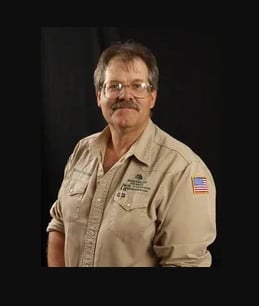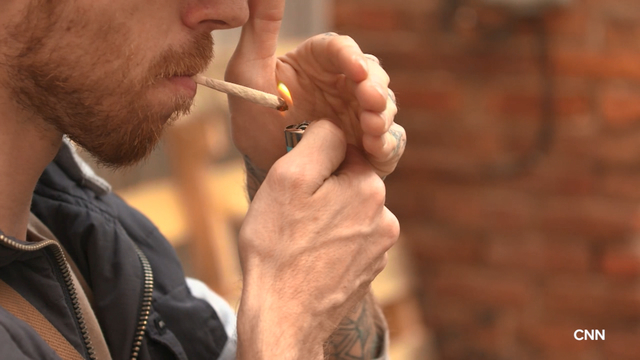Legalization is tough: Regulations vary from state to state, county to county, even town to town. And at the end of the day, since marijuana is still federally classified as a Schedule I drug, it’s all basically illegal.
But that hasn’t stopped entrepreneurs across the country from diving into the industry, one that’s expected to be worth $20 billion by 2020. (And that’s not even counting the CBD industry, projected to be worth an additional $22 billion that same year.) When looking to open in a new state, a weed company has to take a lot of things into account, from how and where it’s grown, to how it’s consumed, to what concentrations of THC make it into the final products.
And as legalization spreads, established companies in early-adopting states are looking to expand — especially to the East Coast, which is expected to largely legalize in the coming years. Rolling Stonecaught up with Peter Barsoom, CEO of 1906 Edibles, a Colorado-based company that specializes in mood-targeting cannabis treats for both the medical and recreational markets. Currently only available in Colorado, they’re moving into both the Massachusetts and Canadian markets next year.
According to Barsoom, a New Jersey native, the New Jersey market is going to be completely different. He talked to us about his company’s plans, and why he thinks it’s going to be the hub of the world’s cannabis industry. “Personally, I think New Jersey is one of the most exciting states,” Barsoom says. “Of all the places that I’d want to operate in, New Jersey would be my number one.”
Why is it you want to go to New Jersey?
New Jersey has a unique set of circumstances that I think allow it to potentially become one of the leaders in the cannabis industry, not just in the U.S., but globally. First off, you have a long history of social justice issues around cannabis prohibition. New Jersey spent over a billion dollars in the last decade prosecuting and enforcing cannabis prohibition laws, and it has some of the highest incarceration rates in our country. So we have a wrong that needs to be righted. Also, New Jersey has some of the highest property taxes in the country, and so there’s a really amazing economic release story that can come from this.
The second part is one of the elements that makes for a successful cannabis program in a state is executive leadership. If you have the right level of executive leadership, then you can put in the right industry, the right regulation and New Jersey will be the first state in the country to legalize and put in a regulated system through legislation. You have it at the Senate president, you have it at the assembly, you have it at the governor, you have it at the director of the department of health, at so many different levels, there is an alignment there, an, “OK, let’s get this right,” and that’s very exciting.
The third is the demographics of New Jersey and their market structure also make it very interesting. New Jersey is a heavily healthcare-oriented state. We’ve got world-class medical schools, world-class bio-tech, world-class healthcare institutions and universities. And one of the things that has long been [a problem is] a gap is research in cannabis: how to affectively use it, what the benefits are, what the risks are, patient outcome, so on and so forth. Because of the prohibition from the federal law, we haven’t been able to do as much research as, for instance, a place like Israel. If we can unshackle that, the people of New Jersey make it the research center of the U.S. — same way Silicon Valley is known for tech.
And then the fourth element is it’s a densely populated, affluent state so, from a consumer perspective, the opportunity to create products particularly for the type of demographic that we’re going after, which is high-functioning adults as opposed to young stoners, makes it exciting from a market opportunity.
But is that unique to this state?
The challenges of some other markets is when you have a legacy stoner culture, and you have to overcome it. California’s had an unregulated gray market for years, and they’re seeing the pains of how do you transition from unregulated gray to a regulated market. Other markets have a strong sort of more “stoner culture” there, which detracts a lot of other older, female affluent consumers. New Jersey has none of that. It has an insignificant current market, so we get to start from scratch. We get to start to create something new from a regulatory perspective, and research, and social justice, and we can say, “OK, you know, we’re focused on consumers for whom this is really gonna be medicine, or this is gonna add to their wellness, as opposed to just a vehicle for getting stoned.”
What was the process was like to get approved in Colorado?
Colorado is an open state in the sense there’s no cap on the number of licenses, so you go through a process of applying, background check, getting property, and if you pass those criteria, then you can get a license. So it wasn’t challenging in that sense to get a license, it’s challenging, you know, to establish and build a new business under a strict regulatory regime. Thankfully, I had 20 years in one of the most highly regulated industries in the world — finance — so I got a lot of experience in compliance and what it takes to build a business.
And how is that different from New Jersey?
New Jersey, totally different story. There’s going to be six licenses, 106 companies apply for it, and it’s a serious competitive environment because the winners of that will get significant spoils. So here we are as one of the only brands that’s applying, pretty much most of the other players that are applying, they would be either new start ups that have no cannabis experience, or they’re one of these large multi-state operators who run cultivation facilities across multiple states.
Because of federal law, marijuana can’t legally cross state lines. For the product that you’re producing in Colorado, are you growing the cannabis yourselves?
In Colorado, you don’t have to be what’s called vertically integrated, so we don’t cultivate.
By vertical integration, you mean that companies are able to grow, process and sell cannabis, all as one company. Is this way you’re going to do in New Jersey?
Oh, yeah. In New Jersey we have to do it all ourselves. We’ve got a team of some of the best cultivators in the country who have built facilities in Colorado, in Maryland, in Ohio, and they’ll be running the cultivation in New Jersey. We’ve proposed Jersey City as our main site.
Jersey City is just across the Hudson River from New York City. Why is that the place you’d want to set up shop?
Jersey City is great. We have a property that is right next to Liberty State Park — literally a hundred feet from the water with views of Manhattan and the Statue of Liberty — and we are planning to build a world-class cultivation and manufacturing facility that would be a destination.
Most other cannabis facilities are behind big fences and dark buildings with a lot of secrecy. This would be a state of the art facility that would welcome people to come in to become educated about cannabis. It’s glass, there’s transparency, and we think it will be a destination site, whether people from New York or people from around the world. It fulfills our values around being highly transparent and highly open to the public.
Is there anything else that you want to add about why you think it’s important to expand to the East Coast?
I mean, I think it’s a great place to build a brand. We have an East Coast sensibility, the way in which we are doing it and how we approach our products. Let’s bring cannabis to the East Coast in a way that’s different than the way it would look in California, and coming from the East Coast, I have a deep understanding of what people and consumers want there. So this will be the first real East Coast brand in the cannabis space — and especially the fact that we’ll be having beverages, chocolates, tablets and a whole host of other products — I think will give people the ability to get off opioids, reduce their alcohol consumption, and have a better night of sleep.
Credit: www.rollingstone.com













